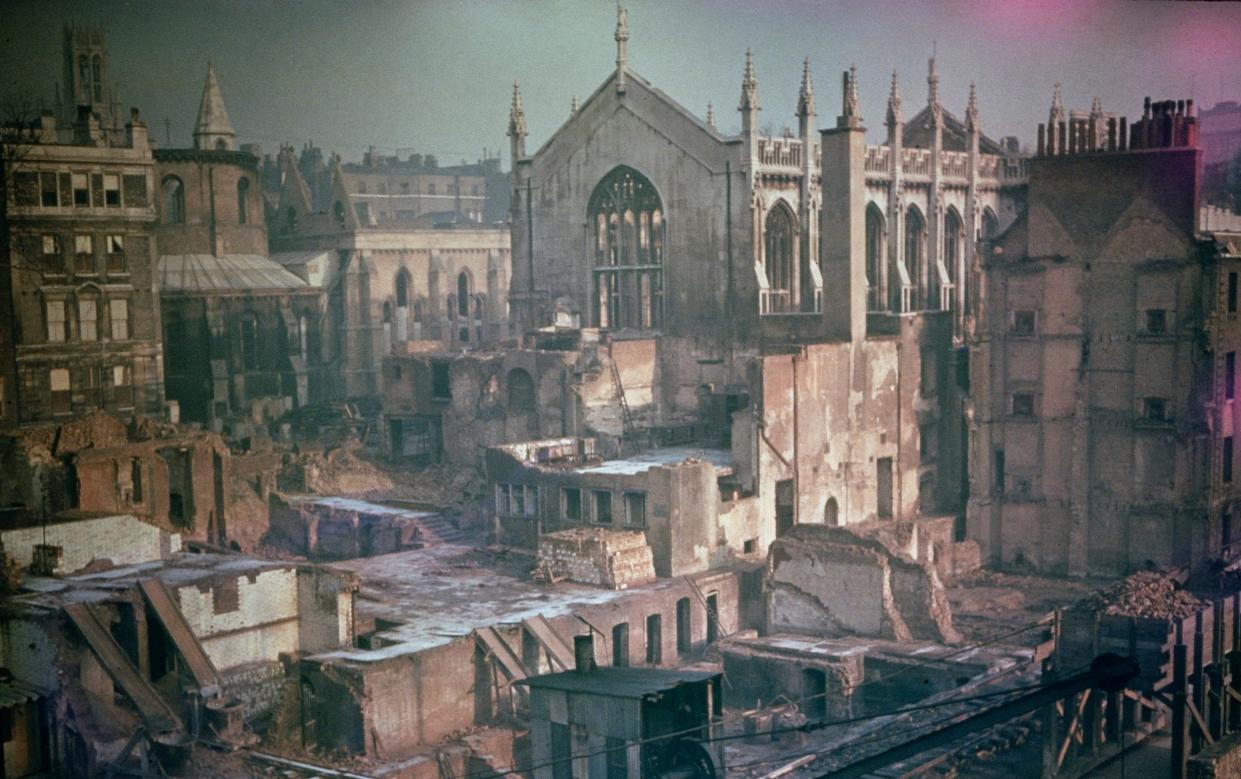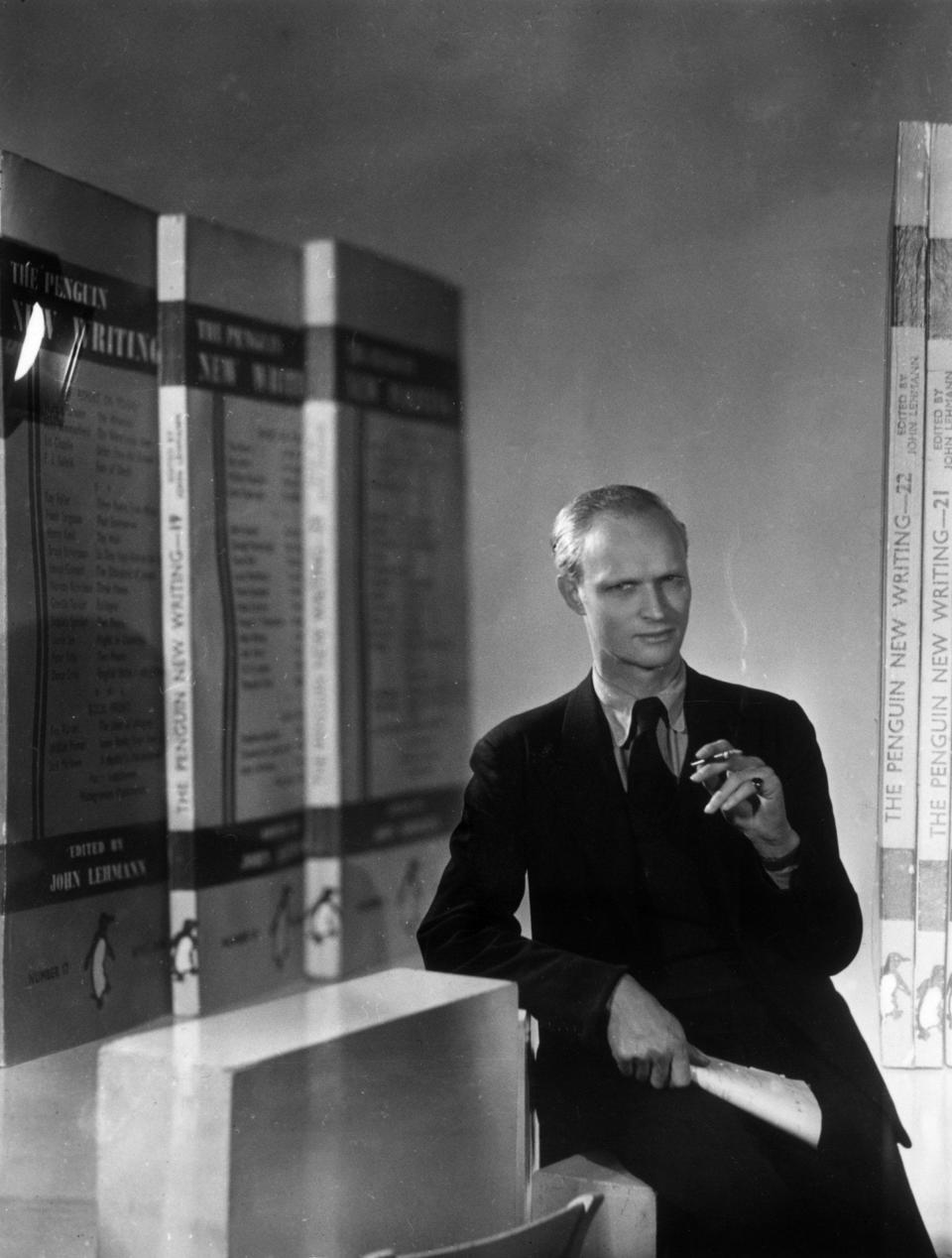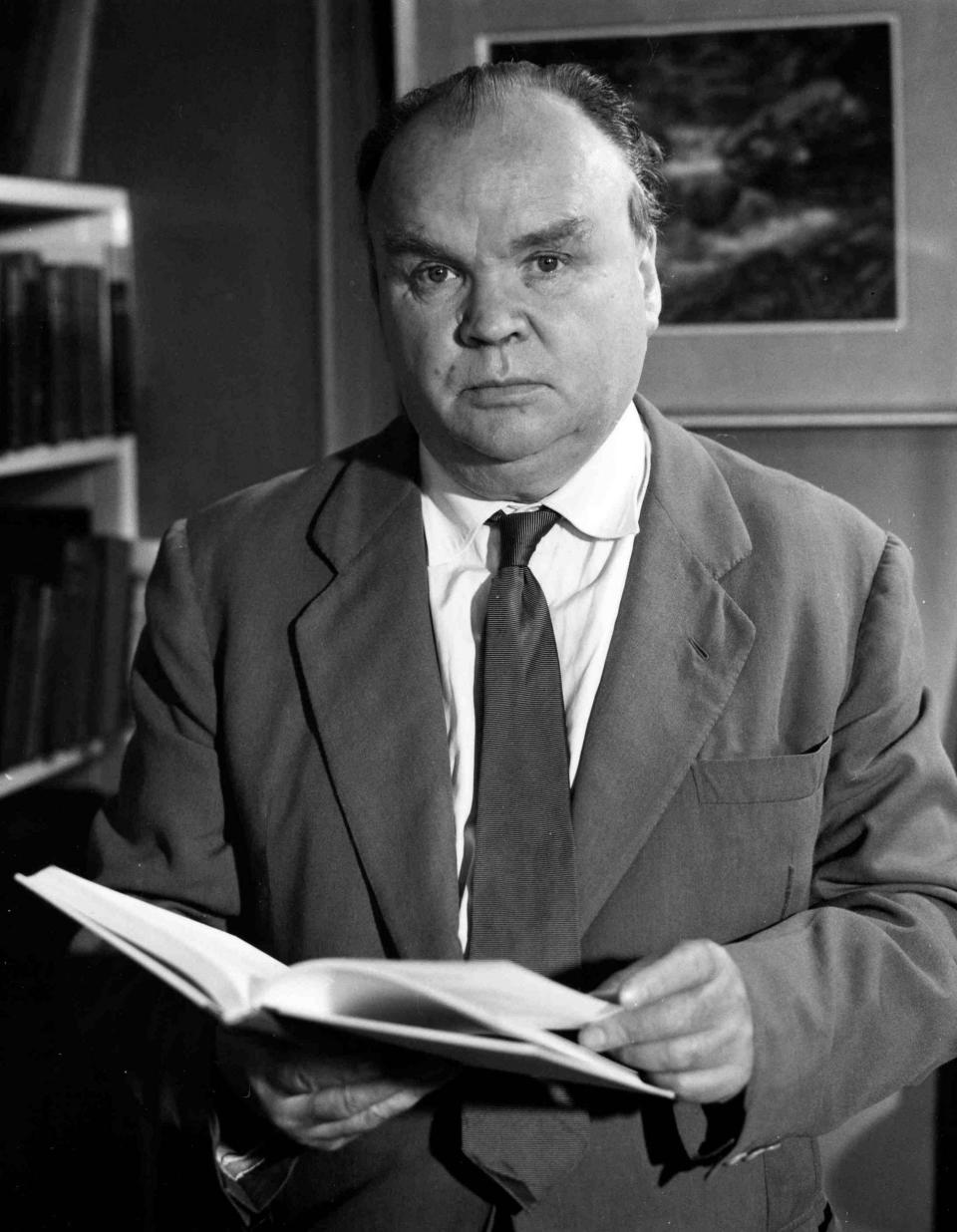The unlikely heroes who saved British literature in the Blitz

- Oops!Something went wrong.Please try again later.
- Oops!Something went wrong.Please try again later.
- Oops!Something went wrong.Please try again later.
It was possible, during the Second World War, for Britain’s eminent authors to feel a perverse envy for their Soviet equivalents, forced under the threat of death to write Stalinist propaganda: it was at least an acknowledgement of the power of literature.
“Creative writers in wartime England have no status at all,” Stephen Spender complained in 1943. The government had found no better use for a celebrated poet (at a time when it was still possible for poets to be famous in England) than to plump him into the Auxiliary Fire Service; too late for the Blitz, Spender found that his days and nights were a round of “cleaning toilet bowls and wiping spittle off duckboards”.
Visual artists were highly valued; Sir Kenneth Clark’s War Artists Advisory Committee had been set up under the aegis of the Ministry of Information almost as soon as war was declared. The coordination of a literary response to the war fell, by contrast, into non-official hands – notably those of Cyril Connolly and John Lehmann, founders, respectively, of the magazines Horizon and New Writing. The central argument in Will Loxley’s survey of literary London during the Second World War is that without these two periodicals, serious literature might have collapsed in Britain.
Perhaps the most devastating blow to the notion of a British literary war effort came at the start of the conflict, when Auden and Isherwood, beloved figureheads of the prodigious generation born in the first decade of the century, hightailed it to the States. If this was English literature’s Abdication Crisis, however, Connolly and Lehmann can be seen as the George VI figures who stepped up and steadied the ship, by keeping the public supplied with good literature against the odds.
They encouraged time-poor and enervated literary writers to keep at it at a time when readers were said to be interested only in escapism; and found ways of dealing with the practical problems of production, which writers are never keen to make allowances for. (Dylan Thomas refused to cut anything from a 216-line poem he submitted to Horizon, despite stringent paper rationing.)

Horizon, in particular, found a large readership despite its highbrow bias, allowing readers to find their own wartime experiences put into words. It also taught them things: it was the first British publication to include an account of a Holocaust atrocity (written by Arthur Koestler), which many readers wrote in to complain about, insisting it must be a horrible hoax.
Loxley does a fine job of keeping this work of literary history lively. There are memorable vignettes of Dylan Thomas and Julian MacLaren-Ross carousing in dingy pubs, and Edith Sitwell defiantly performing her poetry against the background drone of doodlebugs.
One regular source of comedy in the book is Lehmann’s attempts to run the Hogarth Press on behalf of the high-mindedly penny-pinching Virginia and Leonard Woolf (galley proofs were used for toilet paper in the office even before the war), until relations broke down irretrievably. “In no other of my many business relations am I consistently told that I am senile, out of touch, irrelevant, and petulant,” Leonard wrote in a rebuking letter to Lehmann.
This is Loxley’s first book and he sometimes gives an impression of anxiety that a work of non-fiction is not testing his literary powers in the way a novel would. There are a fair few instances of overwritten scene-setting. It seems odd to open a chapter with an extended physical description of the diplomat Sir Archibald Clark Kerr (“his expressiveness … [was] outsourced to the outward creases of his eyes”) when it can only be a paraphrase of other writers’ observations – especially when Clark Kerr then disappears almost immediately from the book.
Luckily, though, Loxley is simply too interested in his material to be self-indulgent for long. He knows how to keep a narrative going, and his critical asides are often incisive and memorably expressed.

At his best, he is excellent. His concluding chapter, taking the unusual viewpoint that the poets of the Second World War are a match for their Great War counterparts, is so vigorously argued and marries criticism, history and biography together so well, that I read it again as soon as I finished it.
He also takes care to keep an eye throughout the book on the experiences of ordinary people, as well as the more rarefied literary types. Nothing quite brings home the effect of the war on the British character as strikingly as George Orwell’s observation that, for the first time in his life, he was witnessing frazzled bus conductors being rude to their passengers. The heroism of the magazine editors is Loxley’s recurring theme, however, not least because it has been underappreciated. In Lehmann’s case, especially, his bravery consisted not just in his staying in London instead of shooting off to safety, but in missing the chance to consolidate his own reputation as a poet by devoting the war years to publishing and editing others.
This job of providing the public with literature was, Lehmann thought, vital in militating against “the death or murder of the imagination, the atrophy of the faculty of considering others as oneself” – the conditions that had fostered the moral disaster of Nazism. One would always hope, in a war, to be on the side of a country in which enterprises like Horizon and Hogarth Press flourished – especially if they did so without government help.
Writing in the Dark by Will Loxley is published by W&N at £20. To order your copy for £16.99, visit Telegraph Books

